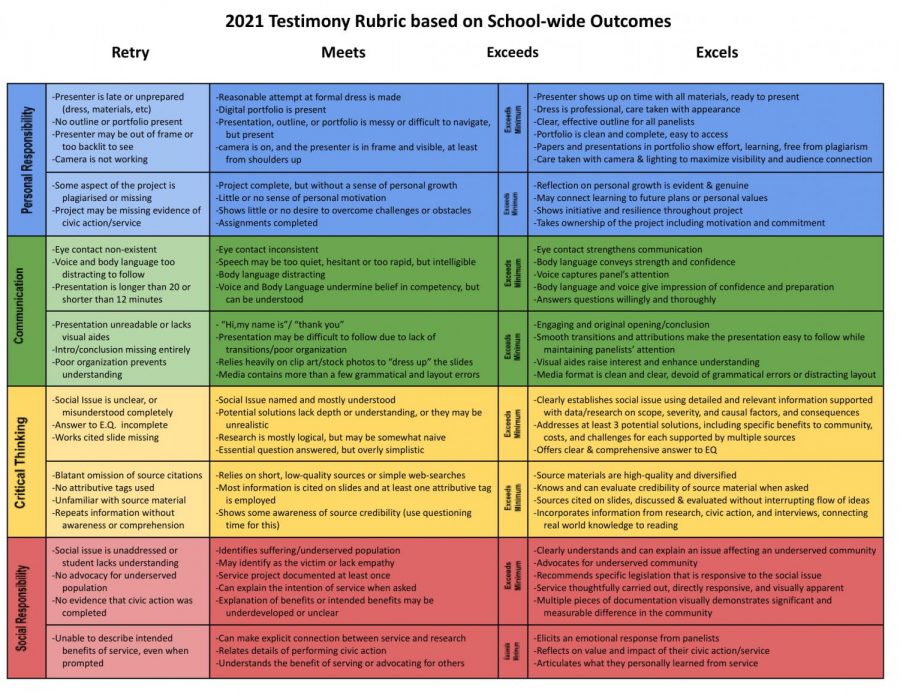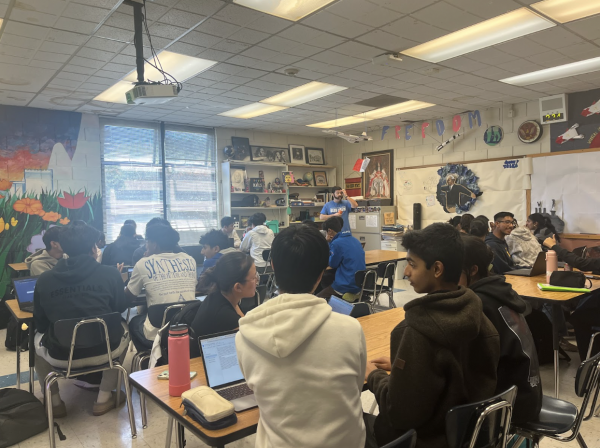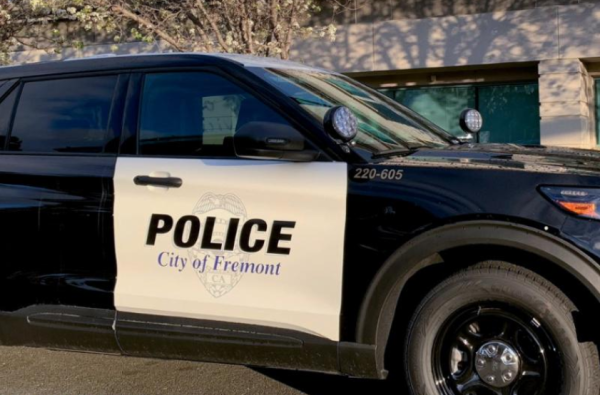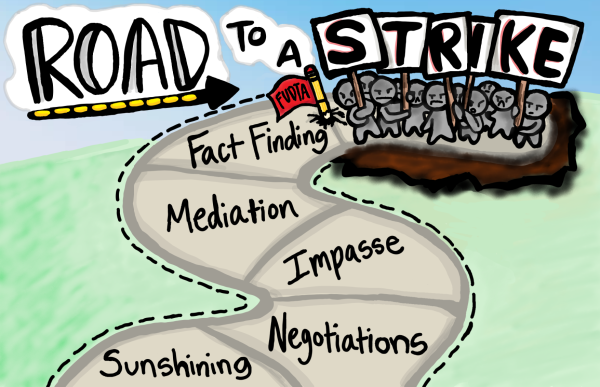Major QUEST Testimony Adaptations
As the 2020-21 school year comes to a close, seniors are set to complete one last benchmark assignment: the QUEST testimonial presentations, which are scheduled for May 12th and May 13th. Due to the distance learning environment, the QUEST coordinators have allowed students to either submit a pre-recorded video or present live during their assigned time slot, as well as let students who did not submit their testimony on time to still walk at graduation.
Contrary to many students’ beliefs, a student will graduate regardless of whether or not they successfully pass their QUEST testimony the first time. In previous years, students who failed would only receive their diploma after completing their testimony successfully, but would not walk at graduation. Due to the difficulties that have impacted this year’s senior class, all students will be able to attend graduation after passing their testimony.
With this in mind, QUEST co-coordinator and English teacher Mr. Matthew Phillips noted that giving students the option to pre-record their presentations seemed like a unanimous decision between the faculty in charge of QUEST. This is not the first time students were able to submit a recorded presentation; the government teachers allowed students this option earlier during the year for the findings presentation.
Mr. Phillips observed that many of his students seemed visibly relieved when they learned that they had the option to pre-record their QUEST testimony. Senior Agatha Shi, a student in Mrs. Hallford’s AP Literature class, pointed out that many students may be nervous about their presentations and this may ease their anxiety.
“It’s easier because I can slow down my speech,” explained Shi. “If I’m too nervous, I can calm my nerves and if I do make any mistakes, I can just restart and record myself again.”
Despite this, distance learning has put many students at a disadvantage in terms of technology, and related issues are likely to arise during the day of presentations. These issues may cut into each student’s allocated time and potentially result in them having to redo their presentation. Taking this into consideration, Mr. Phillips and the rest of the QUEST department believed that pre-recording presentations would tremendously lower the chances of technical issues.
“If something goes wrong with a testimony, you can’t stall and fix the internet connection and then come back later and start,” explained Mr. Phillips. “You miss your time. If you don’t get it started in the first five minutes of class, you just have to give the kid a redo.”
In addition to providing students the ability to choose their testimony format, the QUEST rubric has also been altered this year to reflect the service and research that students were able to participate in given the circumstances. Mr. Phillips believes this rubric is far better than previous years because it looks for effort and passion.
“The prior rubrics judged how good your project was overall; how good your research and presentation skills are,” stated Mr. Phillips. “Whereas this one leans a lot more on ‘Are you taking personal responsibility for what you’re doing in your project? Do you have a good sense of what your service was about?’”
Previously, the rubric categories included content, organization, and sources/citations but the new rubric includes personal responsibility, communication, critical thinking, and social responsibility. This improved rubric shifts from solely evaluating students based on common core standards to focusing on their passion for their topic along with common core standards. Mr. Phillips has released a peer-grading Google form for students to use; it explicitly states the information that must be in the presentation which includes personal growth, relation to goals and values, demonstrated initiative, and ownership of the project.
With the last day to turn in late QUEST materials being last Friday, April 30th, seniors are now compiling and rehearsing their final testimony slides in preparation for May 12th and 13th.









